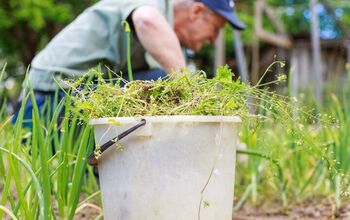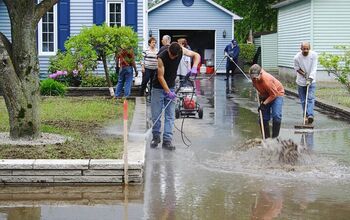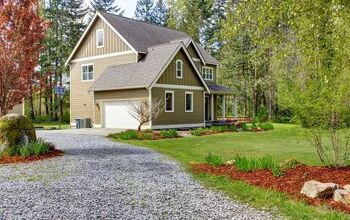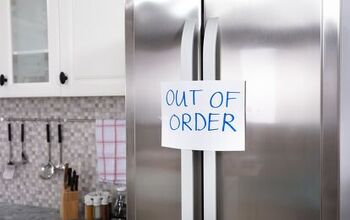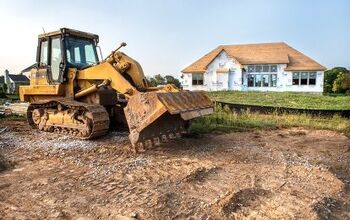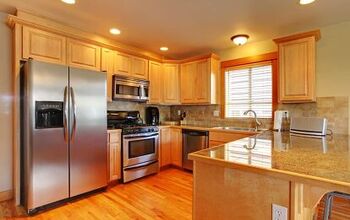What Is A Shared Driveway Agreement?

If you share a roadway or driveway with one or more neighbors, a shared driveway agreement is a good idea. In many instances, a shared driveway agreement comes into being haphazardly leading to legal issues in the future.
A shared driveway agreement is a legal easement that defines the ownership of a driveway. You can involve lawyers for a formally shared driveway agreement to clarify each signee’s rights. This agreement can specify the parameters, responsibilities, maintenance, and rules of the driveway.
What is an Easement?
An easement is a legal agreement that gives title to a specific piece of land. The easement gives one or more other entities the right to use the land for distinct purposes. The most common easements are for utilities that pass under or over your property.
In situations where your driveway access straddles your property line or runs along the back edge of your property, you share access with your neighbor. You have, in effect, created an easement that allows your neighbor to access his property using your half of the shared driveway.
Formal Vs. Informal Easements
Many easements come from informal agreements and historical use of a road or alleyway. These informal easements, often verbal agreements between neighbors, can cause legal issues when ownership or use of the shared property changes.
A formal easement attached to the deed of your house Is an easement appurtenant. The easement is tied to the property and remains in place when ownership changes. Formal easements set out the specifics of the uses, maintenance, and ownership of the property.
Pros And Cons Of Shared Driveway Agreements
There are both negatives and positives to having a shared driveway and a shared driveway agreement. If you share a driveway with one or more of your neighbors, you should be aware of these pros and cons.
The Positives Of A Shared Driveway Agreement
When a shared driveway exists, there are several positives about having a formal shared driveway agreement or easement.
- The shared driveway agreement sets out the specific rights of each party
- The document makes clear who is responsible for maintenance and upkeep
- The agreement makes clear the use requirements
- Having a shared driveway agreement in place can make selling your home easier
The Negatives Of A Shared Driveway Agreement
Even the best shared driveway agreements can fall short under some circumstances. You may have issues with your shared driveway agreement and your neighbor. Some of the more common problems include:
- You may not agree to all the requirements and restrictions of the shared driveway agreement
- The agreement may limit the way you use your shared driveway.
- You may find that you have inadequate parking available
What Rules or Restrictions Is Common in Shared Driveway Agreements?
Some things should be in every shared driveway agreement. We always suggest that before entering any formal legal contract, you consult with an attorney familiar with easements and contracts. The things that should be in every shared driveway agreement include:
The Legal Description of the Property Involved
The legal description of the property will depend on a survey that sets out the exact dimensions and boundaries of the driveway. Getting these boundaries and dimensions usually requires a professional surveyor who will give you a certified survey to accompany the legal documents.
The Specifics of the Agreement
The shared driveway agreement needs to identify who has responsibility for
- The maintenance of the driveway surface or finish and how are the costs shared?
- The upkeep and care of other parts of the driveway, including such things as snow and ice removal, and landscaping.
- Any limitations on use pf the driveway, such as parking cars, boats, or other vehicles adjacent too or on the driveway.
- Blockages of the access to the driveway, whether incidental or permanent.
- How will temporary parking be handled, such as during parties or other social gatherings or family events?
- The remedies and methods if a disagreement arises. What steps does one party of the agreement have to deal with problems?
- Where does liability fall in the event of an accident on the shared driveway? Liability issues can include personal liability, property damage, etc.
What if the Easement on my Deed Doesn’t Cover Certain Aspects?
In some cases, builders or developers put limited easements on the deeds of properties. Limited easements are often the case where multiple houses share access to one driveway or alleyway. These limited easements can be less than helpful if a dispute arises
Executing a separate shared driveway agreement may be one way to prevent issues. Consulting with an attorney familiar with easements and shared driveway agreements is your best choice.
How Does a Shared Driveway Affect the Resale of my Home?
In a perfect situation, a well-written easement is in the deed recorded with the registrar of your county. If there is no easement on a shared driveway or the easement is not professionally written, there could be complications with the future sale of your home.
In some instances, a property title insurance company will refuse to issue a title policy until you record a shared driveway agreement. A refusal can also be the case if the easement description is not complete.
Some realtors report that many buyers will shy away from properties with a shared driveway fearing complications from dealing with neighbors. A written shared driveway agreement or easement can alleviate some of these concerns.
Doing Due Diligence
If you think you have a shared driveway problem, it is in your best interest to do your due diligence and find out precisely what kinds of easements or agreements are in place. Investigating the situation is especially crucial if you are anticipating the sale of your home or property.
Please consult an attorney. This article does not constitute legal advice and serves only as necessary information. Before executing any agreements or filing any additions or amendments to your deed, a licensed attorney should be involved.
Rules Of Shared Driveways
Undeniably, there are some obvious frustrations that come along with having a shared driveway. The most obvious being that – since you are sharing your driveway with your neighbors – you could get involved in a disagreement. Though arguments are a part of life, they could be made even more difficult since you are sharing something that is necessary to both you and your neighbor’s comfort and convenience.
These negative aspects associated with sharing a driveway can be remedied or eliminated entirely by having a clear set of rules that govern the shared property. In fact, it is relatively common for written guidelines to exist in the legal documentation that pertains to the land that the driveway resides on.
Get A Subdivision Plan
The rules for the shared driveway may be established as an easement of the subdivision plan or as a covenant on the deeds of the individual homes that share it. Additionally, depending on the circumstances, there could be an easement for one portion of the driveway, but not another.
The conditions of the arrangement can vary, but in the majority of cases, there will already be rules in place for both how the driveway should be maintained, and how disagreements must be treated when they occur.
What Is My Role As A Potential Buyer Of A Home With A Shared Driveway?
If you are a potential buyer for a home with a shared driveway, it is your job to consult with your real estate agent about whether or not rules currently exist for the driveway. Once you find out all the details, you can determine if it’s worth living with.
First, speak with your realtor and ask them to collect documentation pertaining to the rules and use of the shared driveway on the property. Your realtor will gather a survey map that displays the easement borders of the driveway, and show you who actually owns it. Although the driveway is “shared,” it could be owned by one party who has rules in place for those they allow to use it.
Your realtor should also collect information about how the driveway must be shared, how is responsible for maintenance and repairs, and any other related information. Lastly, it’s best to pay a visit to the neighbors you will be sharing the driveway with. That way, you can get further information on what is expected.
What If There Is No Shared Driveway Agreement?
When you’re looking into purchasing a home with a shared driveway, do not be surprised if there aren’t any rules governing said driveway. Or, your neighbors may not even be aware of a shared driveway agreement.
If you find out that there are no legally binding rules, it’s best to request that the seller obtain a written shared driveway agreement before you buy the house. You may also want to consider speaking with a lawyer to verify that the agreement is thorough and protects you as well.
The concerns you have now will likely come up again by the eventual buyer of the home when it comes time for you to sell. By having a shared driveway agreement in place, it gives all parties some peace of mind.

We are a team of passionate homeowners, home improvement pros, and DIY enthusiasts who enjoy sharing home improvement, housekeeping, decorating, and more with other homeowners! Whether you're looking for a step-by-step guide on fixing an appliance or the cost of installing a fence, we've here to help.
More by Upgraded Home Team




